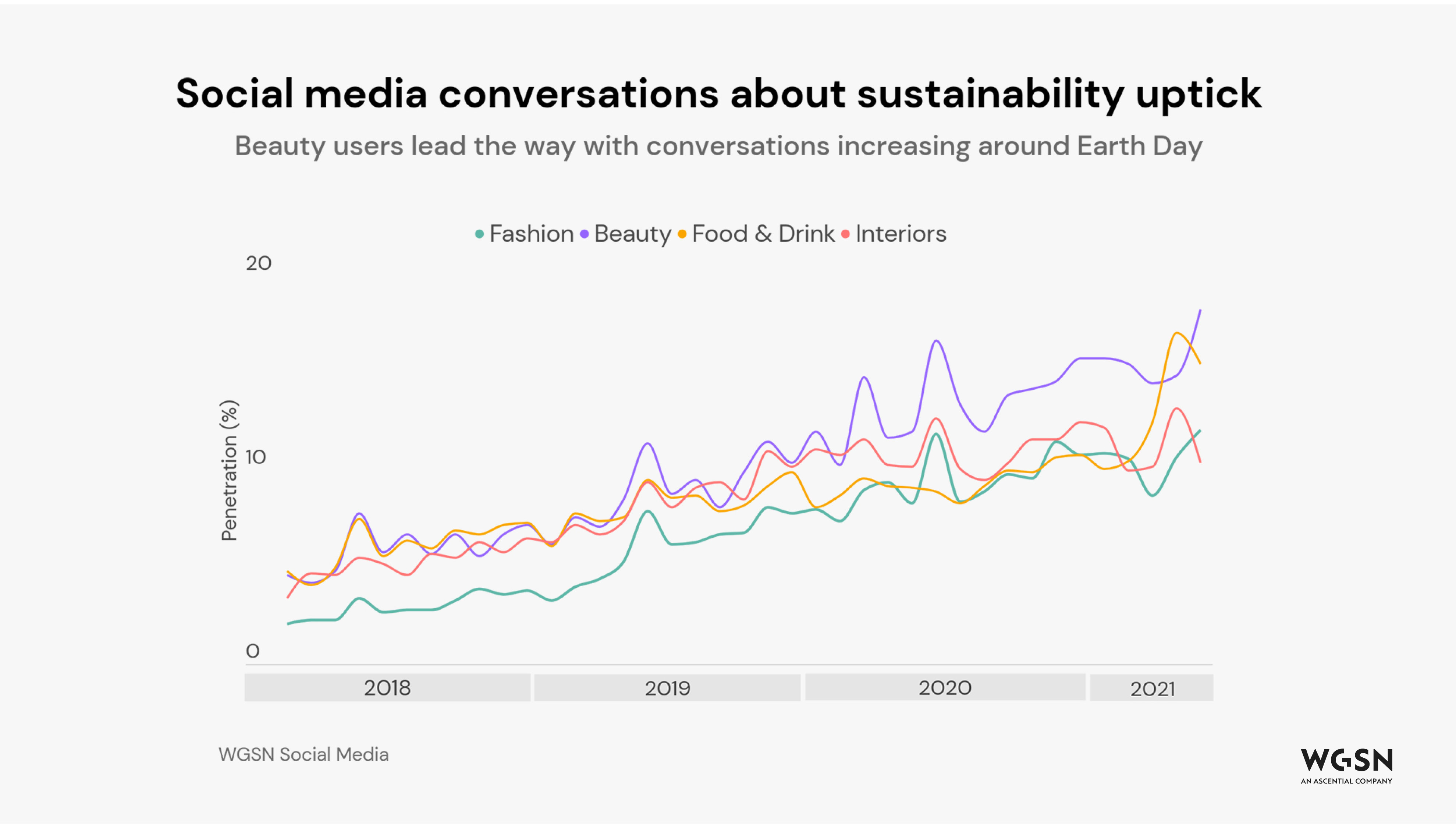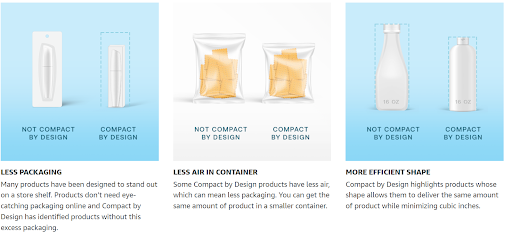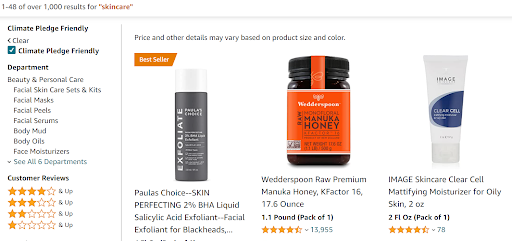The growing influence of climate labels and eco-scoring in ecommerce
Sustainability will very likely be front and centre of CES 2022, the first live event for two years.
You can bet keynote speeches and presentations from the world’s biggest businesses and brands will be used to trumpet increasingly ambitious commitments and measures to reduce greenhouse gas emissions, cut waste in supply chains and protect precious natural resources.
Organizations that play such a major part in our lives will be keen to make sure that innovations they bring to market will be either directly linked to the green agenda or at least will not be overshadowed by criticism that they are not contributing enough to the global fight against climate change.
Fresh in everyone’s mind is COP 26. The global climate summit hosted in Glasgow by the UN in November was the sharpest reminder yet of the scale of the catastrophe to our planet and human civilization of rising temperatures. The much-heralded conference has been widely regarded as a last-ditch effort to put the world on track to limit global heating to 1.5C above pre-industrial levels.
While embracing environmental stewardship has been a growing trend among companies for a few years, the imperative to make dramatic changes in how we live, spend, buy, work and make things has never been clearer.
The Intergovernmental Panel on Climate Change, the world’s leading authority on climate science, has said any global warming above 1.5 degrees could be devastating for billions of people, wildlife, ecosystems and habitats.
The warning is chilling and has not been lost on shoppers. Environmental, social and governance (ESG) principles are driving purchase decisions like never before; the pandemic shining a torch on the interconnectedness between people and planet.

Many studies are demonstrating the change in shopper behaviour. One is a survey commissioned by US sustainable materials company Genomatica in June last year. It found that 85% of the 2,000 American consumers interviewed have been thinking about sustainability the same amount or more despite the COVID-19 pandemic. 56% said they wanted governments and brands to prioritise sustainability amid a health and economic turmoil and 86% of Americans said sustainability will be equally or more important when the pandemic subsides.
Almost 40% of the survey’s participants said they were willing to pay a bit more for sustainable products even in one of the most economically fragile and uncertain periods since World War II.
Is the conscious shopper becoming the everyday shopper?
Climate labels: an ecommerce battleground in 2022?
Retailers and brands, big and small, and across industries and markets have been taking radical measures to react to consumer concerns about the environment over the past years. They have taken strides to cut packaging and plastic pollution and adopt circular solutions - and 2021, against the worrying ebb and flow of coronavirus and widespread economic uncertainty, has seen the most activity in this space.
Carrefour, Tesco, Kroger, Walgreens, Japan’s Aeon and Woolworths in Australia are some of the retailers to have partnered with reusable packaging platform Loop to offer refillable containers and recycling systems in stores. Amazon and Walmart have ambitious goals to be carbon neutral by 2040 and are taking huge steps to not only decarbon global operations but also support their supply chain reduce emissions and protect agriculture and natural habitats.
Some retailers have launched eco-conscious assortments. Target recently partnered with ‘eco-friendly’ cleaning and home essentials direct-to-consumer (D2C) brand Grove Collaborative, which saw enormous growth at the height of lockdowns. Others have launched private label portfolios, which tend to appeal to the majority budget consumer for whom price will always be at the forefront of purchasing decisions.
Sustainable certifications and eco-labelling are also now gaining ground
Transparency is key for shoppers today. Ambitious pledges to go “net zero” and “zero waste” are a start, but shoppers are really looking for action; tangible signs that the brands that claim to be putting environmental concerns at the core of their business model are following through - and climate certificates as well as eco-scores can offer that communication online.

Amazon was quick off the mark to spot the opportunity to help responsible shoppers discover sustainable products. Last September, the ecommerce platform pioneered the climate label in ecommerce with the launch of its Climate Pledge Friendly program in the US first and then Europe (France, Germany, Spain, Italy and UK) shortly after.
To qualify for Climate Pledge Friendly, a product must be certified by at least one of Amazon’s external third-party certifications, such as Rainforest Alliance, Fairtrade International, and USDA Organic, or by its own Compact by Design certification. To qualify for Amazon Compact by Design, products must have best-in-class “unit efficiency” - in other words the packaging must meet Amazon’s own criteria for weight, size and shape to become more efficient to ship.
As of October, Amazon said more than 200,000 products and more than 10,000 brands are now available through its Climate Pledge Friendly label across beauty, wellness, apparel, electronics, household, and grocery. Amazon also said it has expanded its list of external certifiers to 36, up from 19 when it first launched the scheme a little more than 12 months ago.
Items which have the badge are featured in a dedicated curation. These can be found by clicking on the Climate Pledge Friendly box on the left hand side after a search. See below:
They can also be found through a company’s brand shop that calls out sustainability for relevant products. Other retailers have followed suit. Walmart recently announced the launch of its Built for Better programme to help consumers identify products which are made with their wellbeing - or the planet’s - in mind. Icons highlight For You and For the Planet based on the goal and type of certification.
In Europe, Carrefour, Migros and Lidl have been front-runners in adopting eco-labelling schemes that link environmental preferences with product visibility and make it easier for the shopper to discover and buy products and brands that are acting on their commitments. We believe climate and sustainability badges and eco-labelling will become table stakes in 2022.
But what is the impact of the badge on search and discoverability online - and even more importantly, on conversion and sales?
Planet first to profit?
Well, there is no evidence at this point that Amazon’s climate badge has any effect on the company’s algorithm. But a recent study by Edge by Ascential shows that the badge highlights SKUs - or ASINS - which would not normally make the first page. Our research, based on about 60,000 ASINs in the Health and Beauty category in the US and the UK, also revealed that almost 10% of best sellers are climate badge ASINs - yet these ASINS account for just 5% of the ASINS harvested for the study. For the study, we looked at Adult Body Skincare, Adult Face Skincare, Baby Skincare, Hair Care among a few other sub-categories of Health and Beauty.
Our analysis also found early indications of positive correlation between climate badge and sales in the US and UK. We see a sales uplift of between 16% and 19% depending on sub-category.
This is just one study*, which was conducted by the Edge by Ascential team using our proprietary Edge Digital Shelf and Edge Market Share products. More work will need to be done to make sweeping statements about a correlated relationship between labels and conversion online.
But the signs are there that these labels will be widely rolled out in 2022. Brands must be aware of their retailer sustainability commitments, eco-conscious creations and climate certificates so as to be included and promoted within relevant assortments. It will be also be important to understand how their own consumer expectations are changing and what their shoppers are demanding from an ESG perspective.
Ultimately, with ecommerce penetration remaining high and growing, making sure your business is communicating ESG commitments online will be a financial imperative.
*The climate label study was conducted by Edge by Ascential over a period of four weeks in 2020 (mid-August to mid September) using about 60,000 Amazon ASINS in the Health & Beauty category.
Will you be at CES? To hear more about how suppliers can succeed in an era of retail disruption and optimize for success in a digital-first shopping landscape where environmental, social and governance (ESG) priorities are front and centre of purchasing decisions, book a meeting with Xian Wang, VP, Edge Retail Insight, Edge by Ascential.





